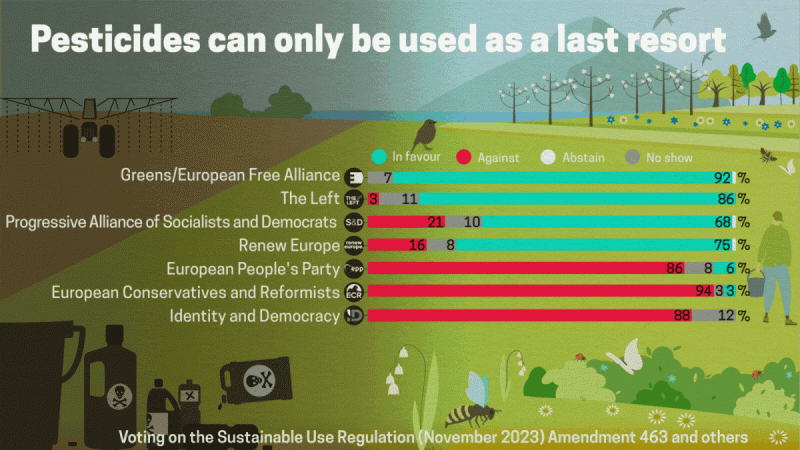EU citizens have repeatedly asked to reduce pesticides. They want to protect their health and biodiversity and ensure a long-term perspective for farmers. Which politician listened and acted? PAN Europe, Friends of the Earth Europe and Corporate Europe Observatory have made an overview of the voting behaviour of Members of the European Parliament (MEPs). We analysed results for 6 key votes. See how political groups voted to protect citizens’ health, ecosystems and farmers. Check which share actively prevented urgently needed measures. The results show that the majority of the Christian Democratic (EPP), conservative (to far-right) (ECR) and far-right (ID) political groups have systematically voted against the public interest.
Pesticide use poses one of today’s biggest challenges. A healthy and sustainable future should be a key topic of the EU elections. Pesticides are a major cause of the collapse of biodiversity. Drastic declines in the numbers of insects and birds have been linked to pesticide use. Our soils are increasingly deprived of life. Many rural areas have been turned into green deserts, losing their soundtrack. Pesticide exposure is linked to a long list of health impacts. Being a farmer, or living in the countryside, has since long lost its healthy connotation. But sustainable farmers across Europe show that nature-inclusive, resilient cropping practices ambitiously decrease pesticide dependency. Citizens’ calls for pesticide reductions have been loud and clear. Consultations, Eurobarometers and polls have highlighted pesticides as a major concern for citizens. Two European Citizens' Initiatives (ECI’s) have asked for ambitious pesticide reductions: the Ban Glyphosate ECI and the Save Bees and Farmers ECI. The demands of more than a million EU citizens have so far remained unanswered.
The pesticide reduction law SUR should have been the answer to their demands. However, many MEPs listened to false narratives of the pesticide industry lobby, which fought hard to torpedo the SUR and avoid pesticide reductions. During the plenary vote in November 2023, highly damaging amendments were accepted by a majority of MEPs, which deprived the text of most of its substance. The much-awaited and urgently needed proposal was ultimately rejected. The proposal was withdrawn by the Commission in February 2024.
It is essential that citizens know which MEPs actively undermined a much-needed effective Regulation to reduce pesticide use, leading to its abandonment. We have assessed the voting behaviour of MEPs on 6 key votes during the SUR Plenary vote. Now is the time to make your vote count! Not reducing pesticides is not an option, and we need to make sure the MEPs elected in June, truly represent the public interest and engage in science-based decision-making.
1. Use Pesticides only as a last resort
One of the main goals of the SUR was to ensure the effective implementation of Integrated Pest Management (IPM). IPM puts preventative measures at the heart of pest control, with pesticides only used as a very last resort. Although IPM has been mandatory under the current Sustainable Use of Pesticides Directive (SUD) since 2014, implementation has been lacking throughout the EU. Past years have shown that a clear framework of crop-specific rules is needed to ensure the implementation of IPM. However, many MEPs have voted to change the ‘crop-specific rules’ in the SUR proposal to ‘crop-specific guidelines’, undermining a clear, binding framework. The scorecard below shows which share of political groups voted to support the effective implementation of IPM rules.
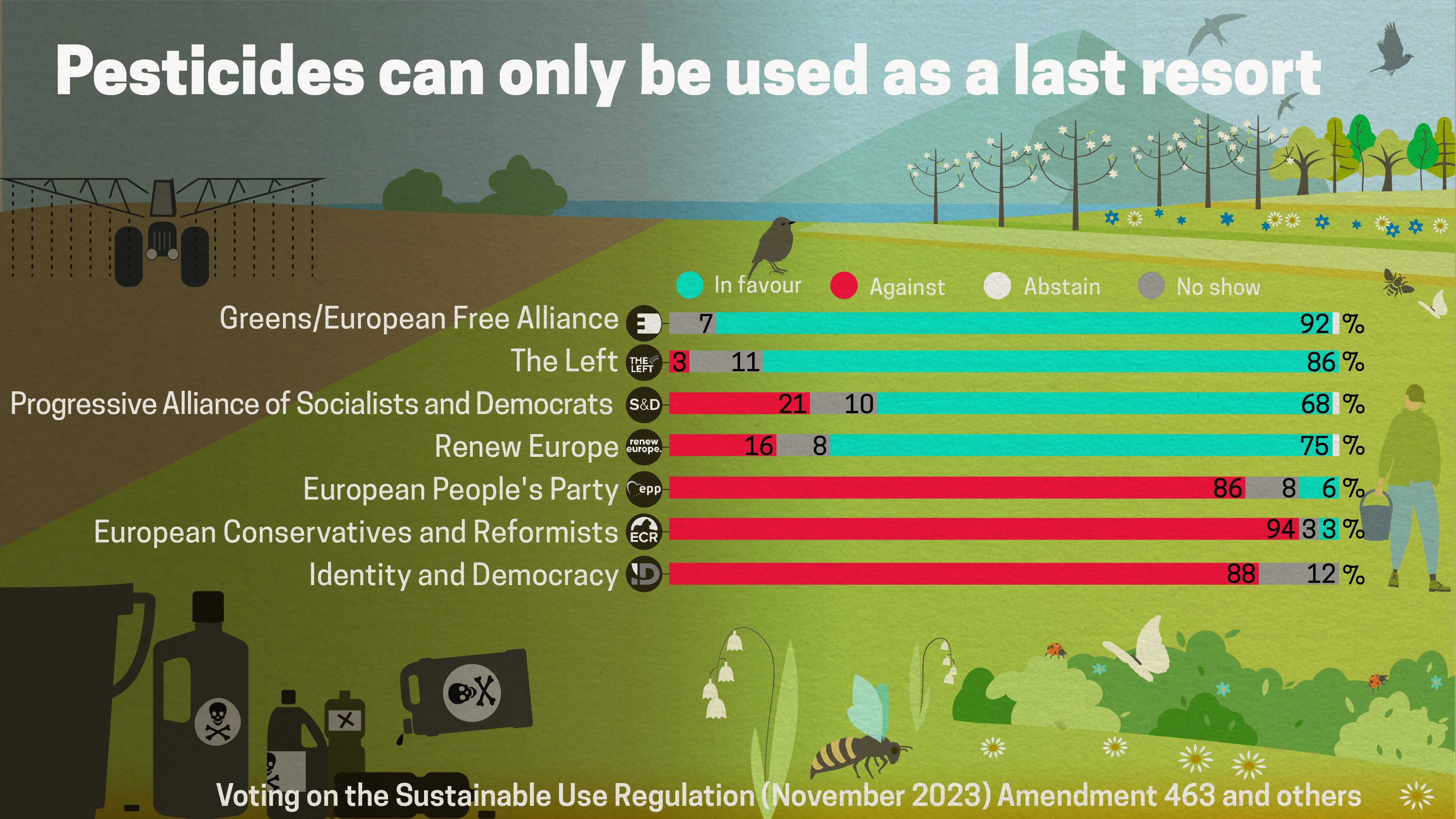
2. Better protect nature areas and public spaces
Another key aim of the SUR proposal was to ensure better protection of citizens and ecosystems, by banning the use of pesticides in public areas and nature areas. The following graph illustrates which percentage of the political groups supported better protection of citizens and biodiversity.
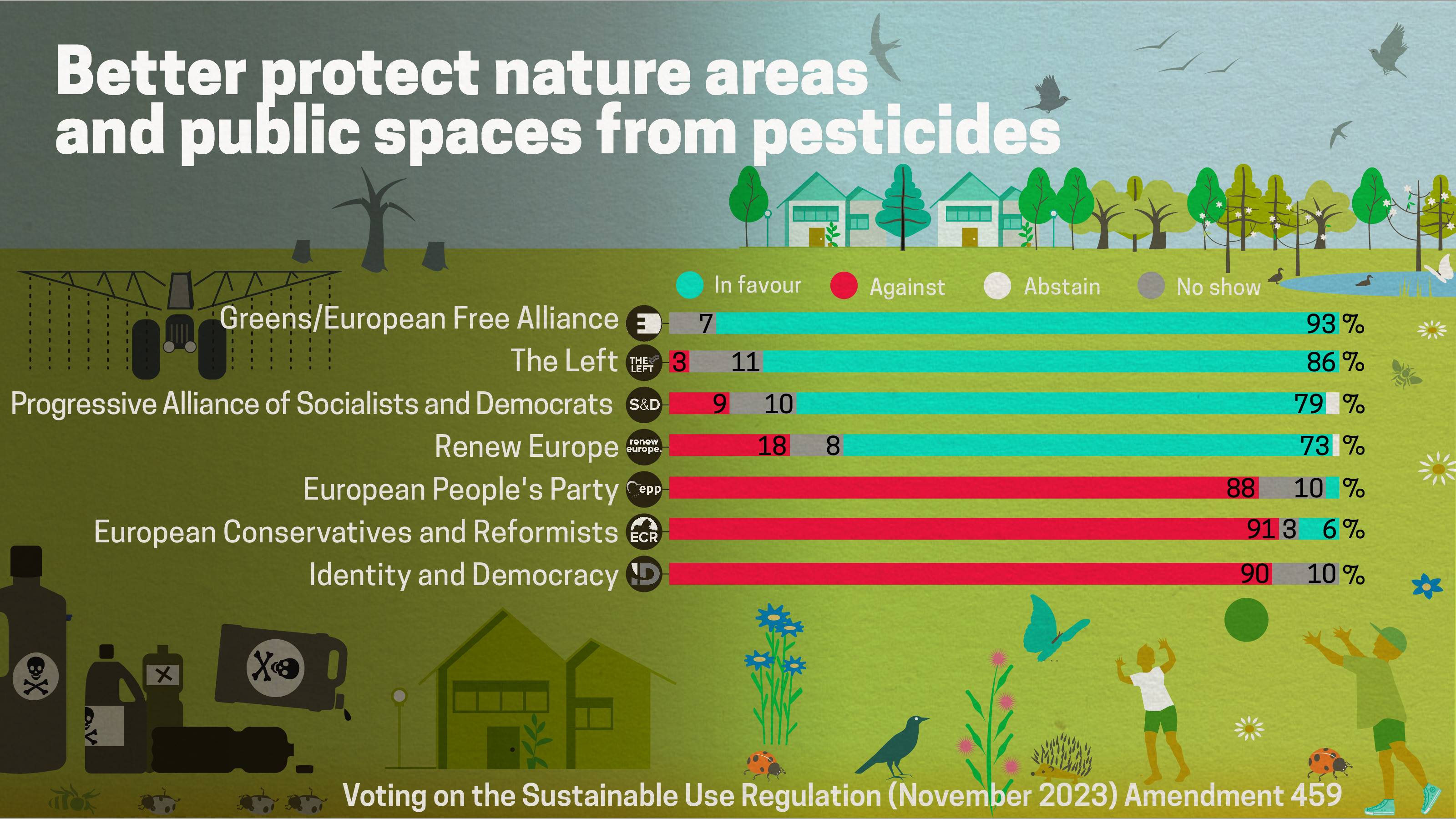
3. Better protect water resources
Pesticide use has a detrimental impact on our aquatic ecosystems, including on drinking water resources. Pesticide pollution of water sources comes at enormous societal costs. Water scarcity poses an urgent threat in the EU, to be exacerbated by climate change. We can’t afford to pollute our waters with pesticides. The graph below shows which share of political groups recognised the need for better water protection, and which share, on the other hand, wanted to delete the SUR article on water protection.
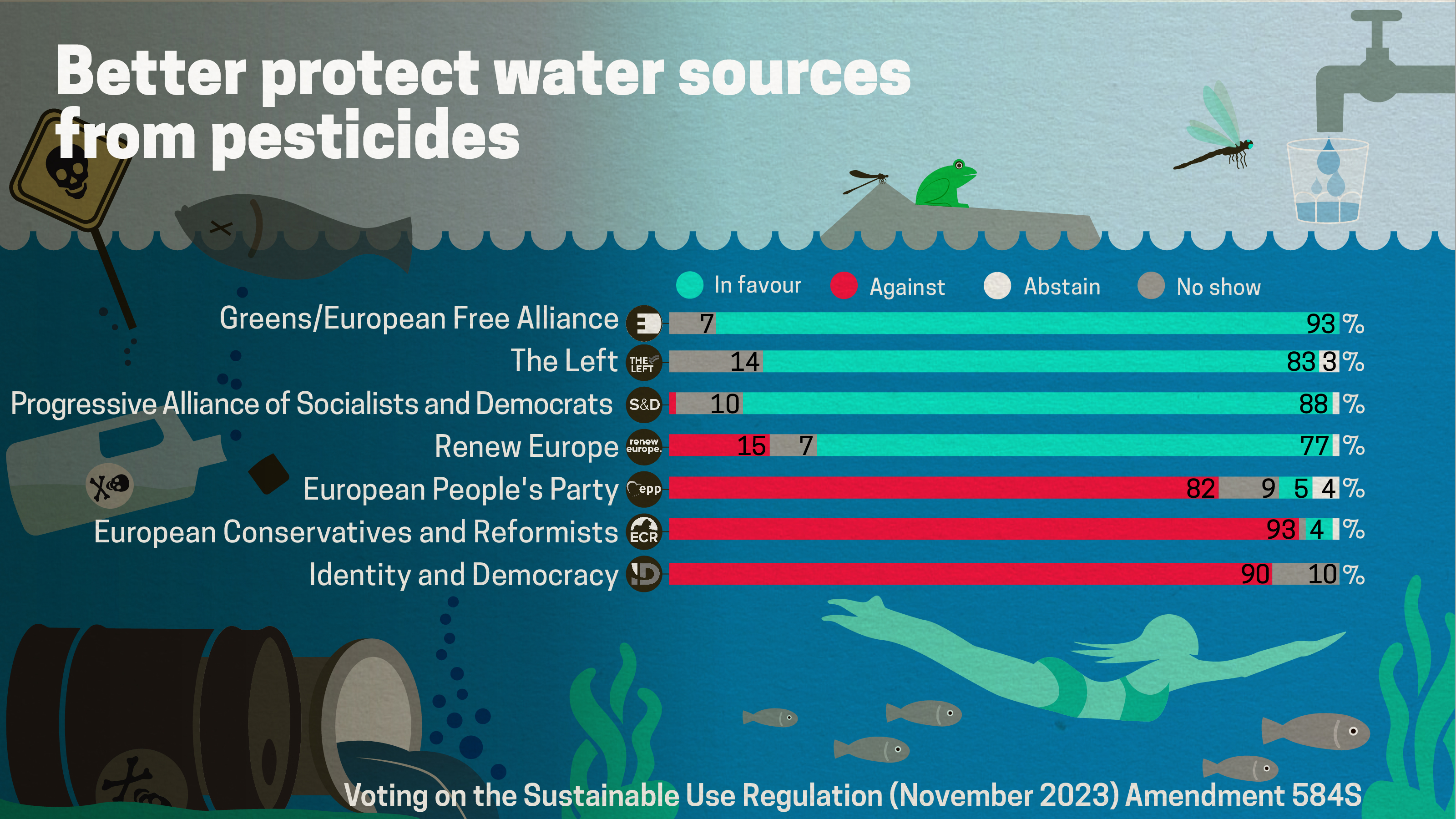
4. Make other food chain players also responsible for pesticide reduction
Not only farmers should be responsible for reducing pesticides, but the whole food chain should ensure the implementation of IPM and effective pesticide reductions. The graph below shows which share of political groups supported an amendment to ensure that also wholesalers, food producers and retailers are engaged in implementing IPM and reducing pesticides.
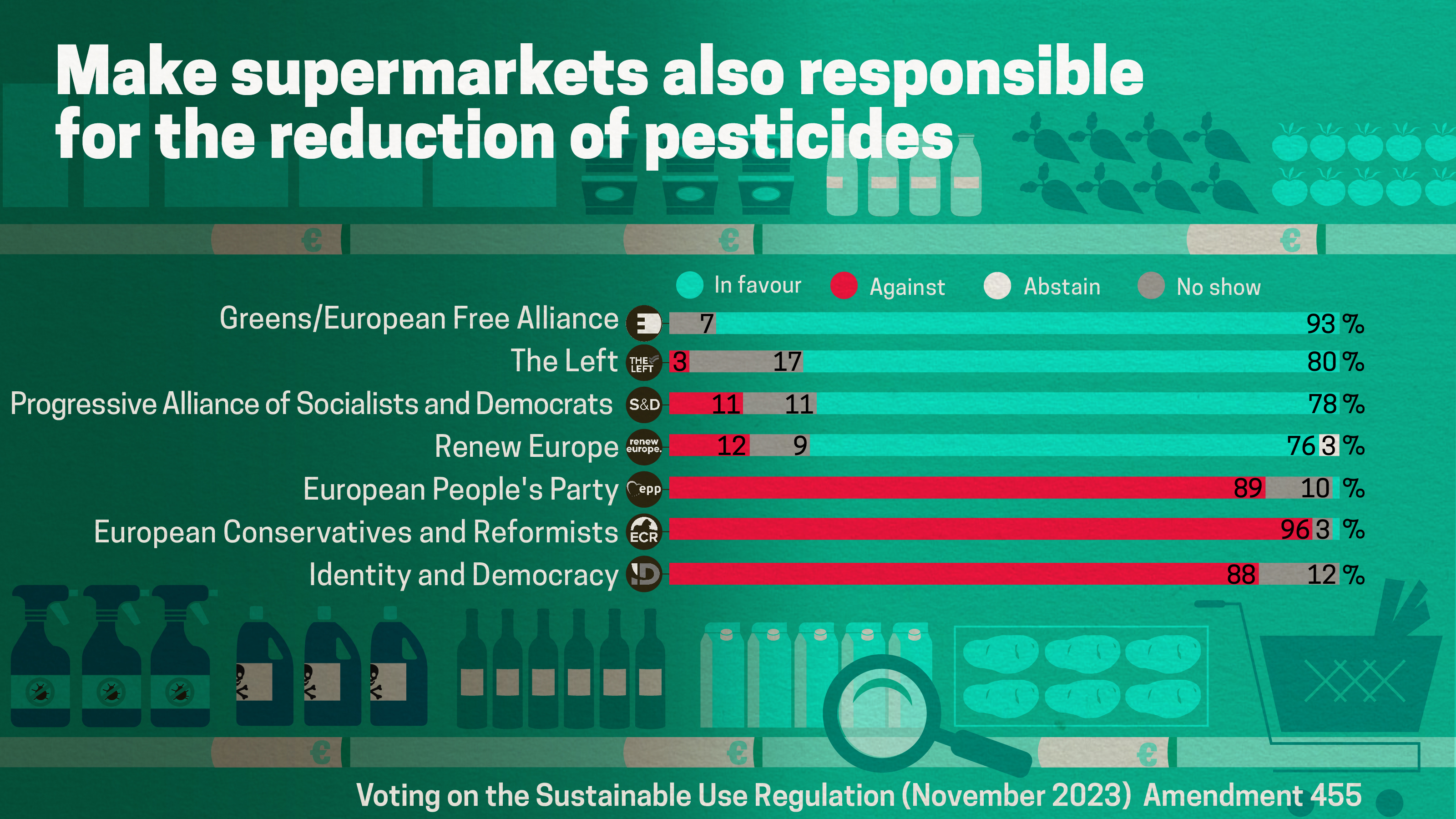
5. Providing yearly independent advice for farmers
The SUR proposal included provisions to provide yearly independent advice for farmers. To support farmers in implementing IPM, support in the form of regular independent advice is key. The scorecard below shows which share of political groups supported farmers to receive at least yearly independent advice. The other MEPs voted for farmers to only receive three-yearly independent advice, which is largely insufficient.
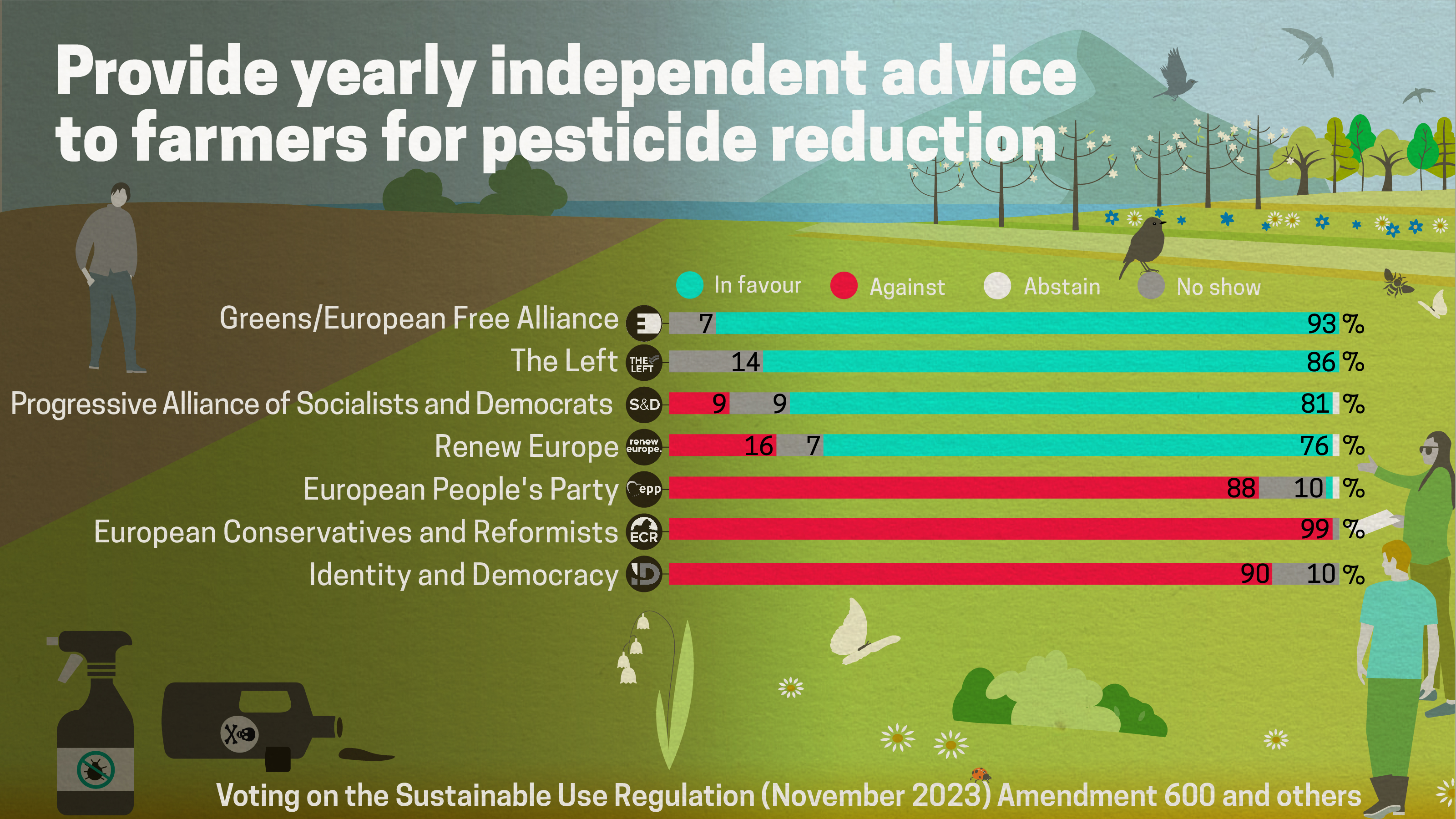
6. Reduction of the most harmful pesticides
The SUR proposal included provisions to reduce the use of more hazardous pesticides (the most harmful pesticides) by 50% by 2030. Most amendments tabled in the European Parliament overall weakened the reduction targets. However, an amendment tabled by the ENVI Committee, aimed to increase the reduction target for more hazardous pesticides to 65%. More hazardous pesticides should be phased out as soon as possible, due to their highly toxic characteristics. Therefore, it was essential that MEPs support this amendment. The graph below shows which share of MEPs supported this more ambitious target, and who rejected it.
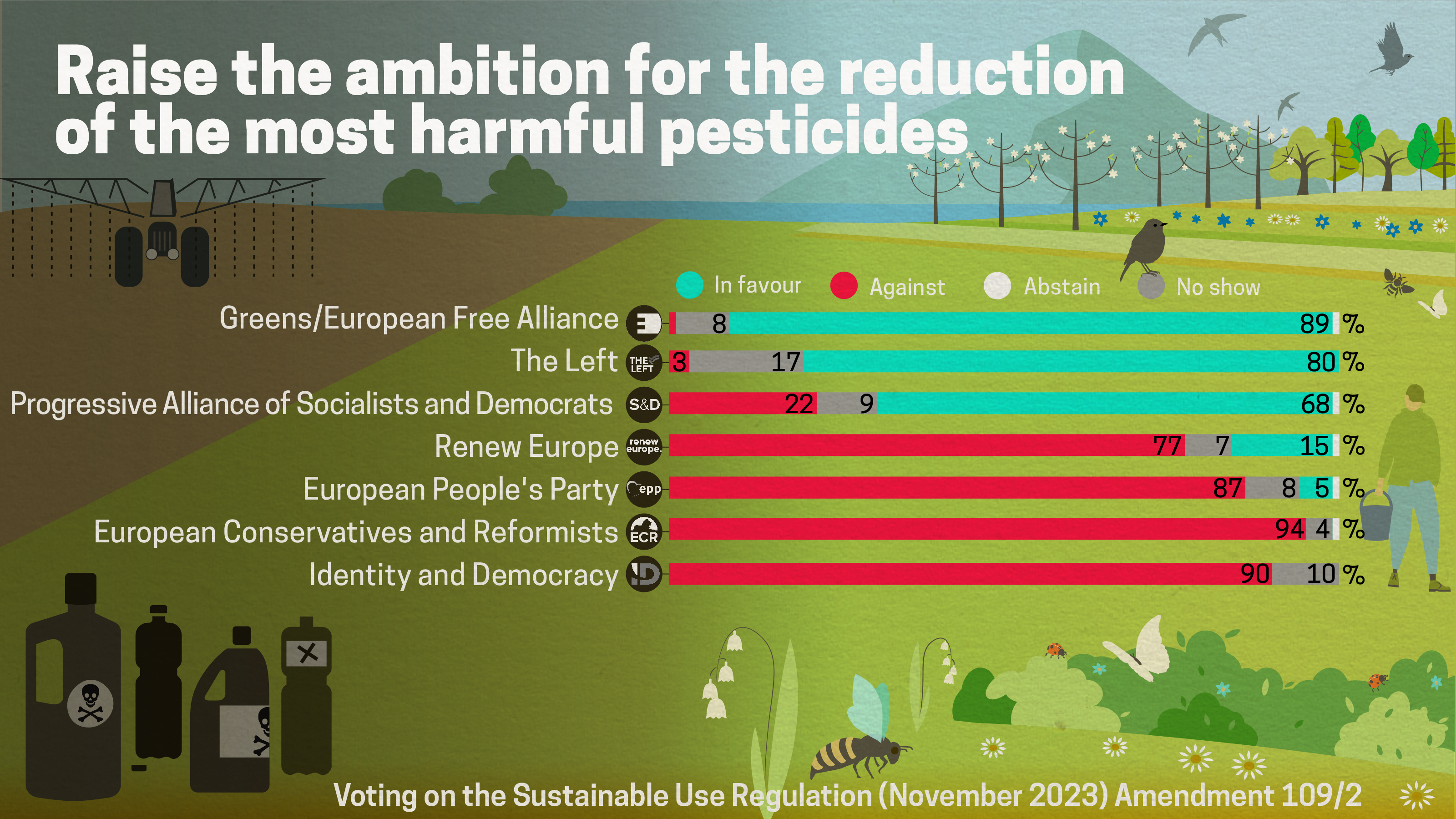
Citizens from Austria, Belgium, France, Germany, Italy, Netherlands, Poland and Spain also have the possibility to check out how MEPs from their national parties voted.
Voters from all EU countries can also check how individual MEPs voted in an overview table.
More information on the followed methodology, and links to the relevant amendments, can be found here.
